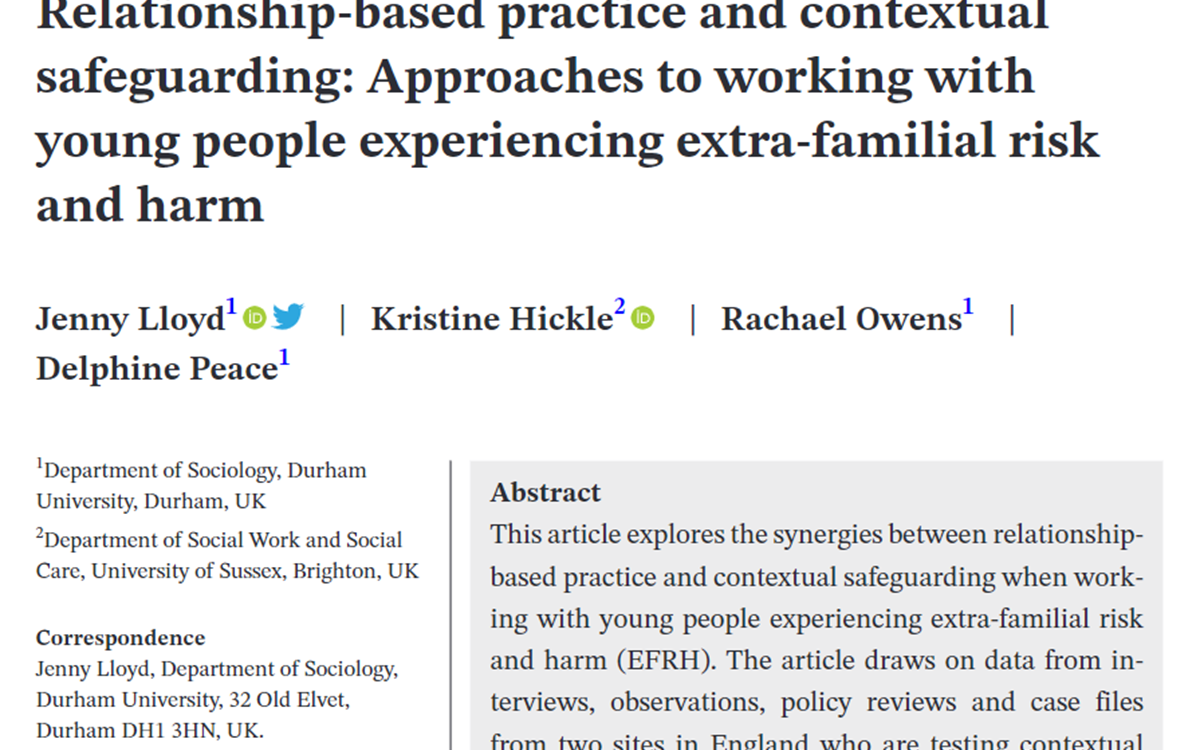Relationship-based practice and contextual safeguarding: Approaches to working with young people experiencing extra-familial risk and harm
Article published in Children and Society. You can access the article below for free or download the PDF Infographic which summarises the key findings.
This article explores the synergies between relationship-based practice and contextual safeguarding when working with young people experiencing extra-familial risk and harm (EFRH). The article draws on data from interviews, observations, policy reviews and case files from two sites in England who are testing contextual safeguarding approaches to EFRH, including a children and families social work department and a voluntary and community sector organisation. The findings evidence how relationship-based practice in contextual safeguarding facilitates practitioners' understanding of places and their peers. The discussion draws on the theory of social defences to evidence that despite willingness and commitment to relationship-based practice, without systemic and cultural organisational support to respond to EFRH, efforts to do so may undermine and cause harm to practitioners engaging in this work.



Lloyd et.al. (2023). This article explores the synergies between relationship-based practice and contextual safeguarding when working with young people experiencing extra-familial risk and harm.

